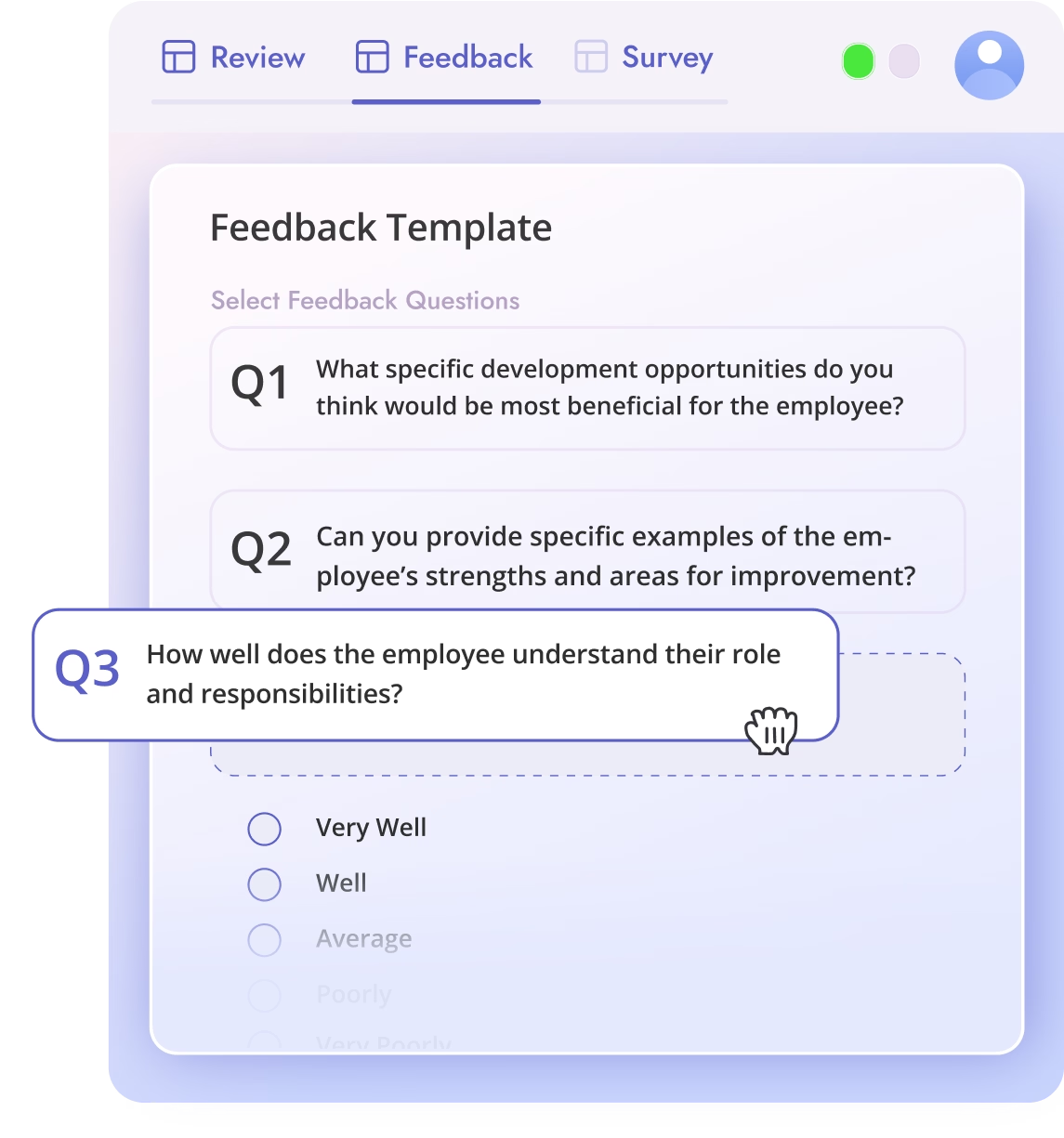The Self-Assessment Feedback Template gives employees a structured way to reflect on their impact, areas for improvement, and development over time. It’s a powerful tool for promoting ownership, self-awareness, and growth-oriented conversations.
Delivered through Teamflect in Microsoft Teams and Outlook, this template ensures self-evaluations are integrated seamlessly into your performance and development workflows.
.avif)
Contributions Reflection
Employees share specific examples of how they’ve added value to the team or organization, helping build recognition and confidence.
Improvement Insight
Encourages honest reflection on areas for growth, setting the stage for meaningful conversations with managers.
Development Over Time
Asks employees to think about how they’ve grown in their role—perfect for career planning or mid-year check-ins.
Team Collaboration Rating
A multiple-choice question where employees rate how well they feel they contribute within the team.
Overall Job Performance Self-Rating
A 5-star scale for employees to summarize their performance, giving a personal benchmark to compare with manager feedback.
Simple, Reflective Format
Keeps it straightforward and encourages balanced, thoughtful answers without overwhelming.
Autosave & Flexible Sharing Options
Responses save automatically and can be viewed by managers, employees, or HR depending on your organization’s settings.
1. Use before performance reviews, check-ins, or goal resets
This template helps kick off structured conversations with a clear starting point.
2. Customize for department-specific criteria
Adjust language to reflect technical, creative, or leadership-focused roles.
3. Keep self-assessment in the flow of work
Employees fill out the form directly within Teamflect—no PDFs, uploads, or extra logins needed.
4. Compare self-assessment with manager reviews
Use alongside Teamflect’s review templates to get a full, balanced view of performance from both sides.
Best for:
With the Self-Assessment Feedback Template, you empower employees to take the lead in their own growth, one reflection at a time.
How to build a strong feedback culture in your team
60 self‑evaluation examples you can adapt for your review

The purpose of self-assessment is to allow individuals to reflect on their own performance and identify areas where they excel and areas where they may need improvement. This self-awareness can help individuals set goals for themselves and make meaningful progress in their careers.
Some companies conduct self-assessments on an annual basis, while others may do it semi-annually or even quarterly. It's important to have a regular schedule for self-assessment to keep the process consistent and ensure that employees are aware of their progress and opportunities for improvement.
Self-assessment can contribute to the company in various ways. It can provide valuable insights into the performance and capabilities of the employees. By encouraging self-assessment, companies can gain a better understanding of the strengths and weaknesses of their workforce, which can inform decisions about training, development, and succession planning.
Self-assessment typically covers a wide range of topics and areas, including job performance, communication skills, teamwork, leadership abilities, and work ethic. It can also include specific goals and objectives that an individual has set for themselves or that have been assigned to them by their manager.
A self-assessment template is a structured feedback template or form that helps individuals evaluate and reflect on their own performance, skills, and goals. It provides a framework for self-analysis and helps individuals assess their strengths, areas for improvement, and progress. They are also often referred to as self-review templates.
In a self-assessment, individuals should write about their accomplishments, challenges, and areas of growth. They can reflect on their performance against specific goals or competencies, provide examples of their achievements, and identify areas where they can further develop their skills.